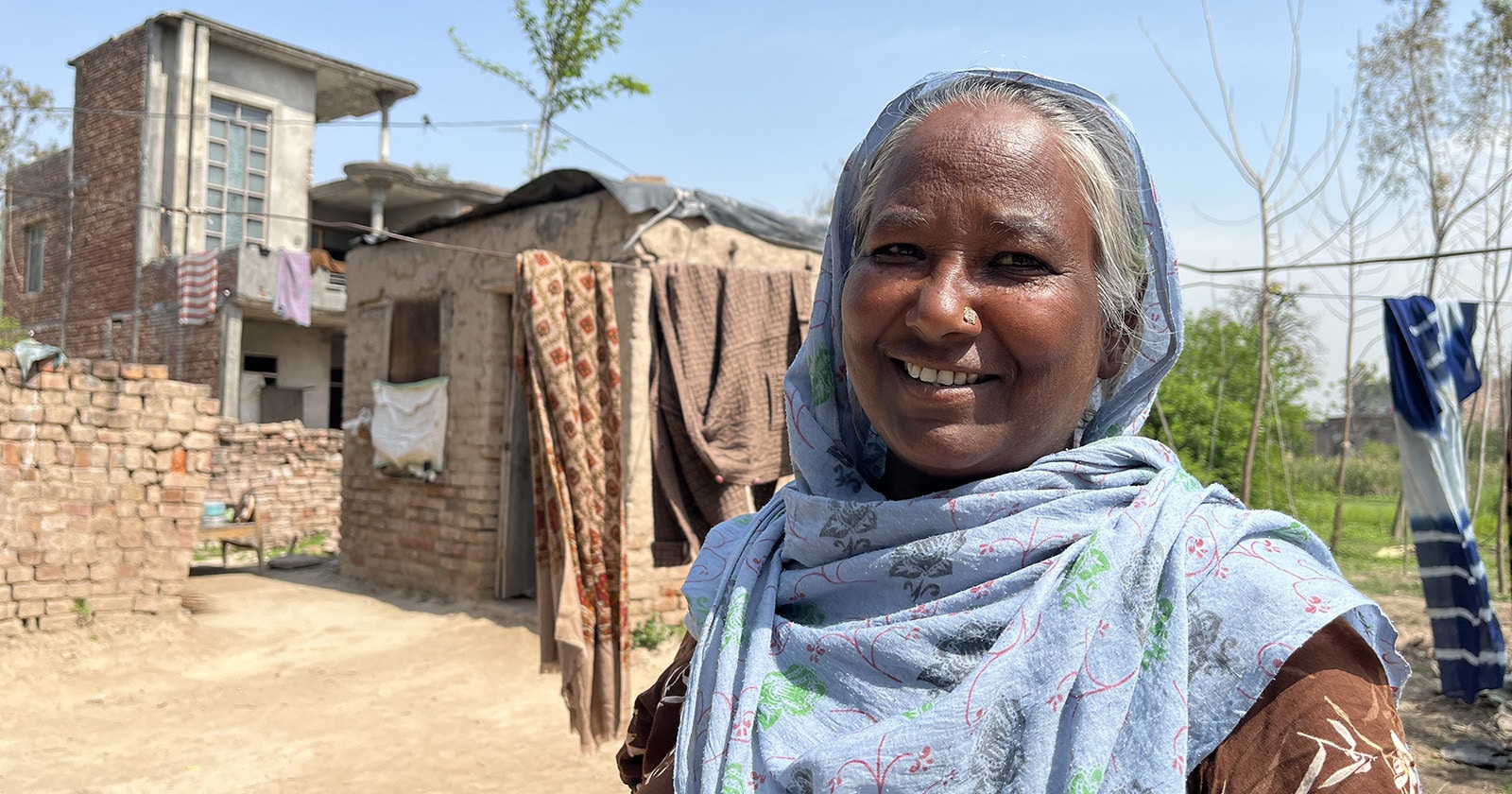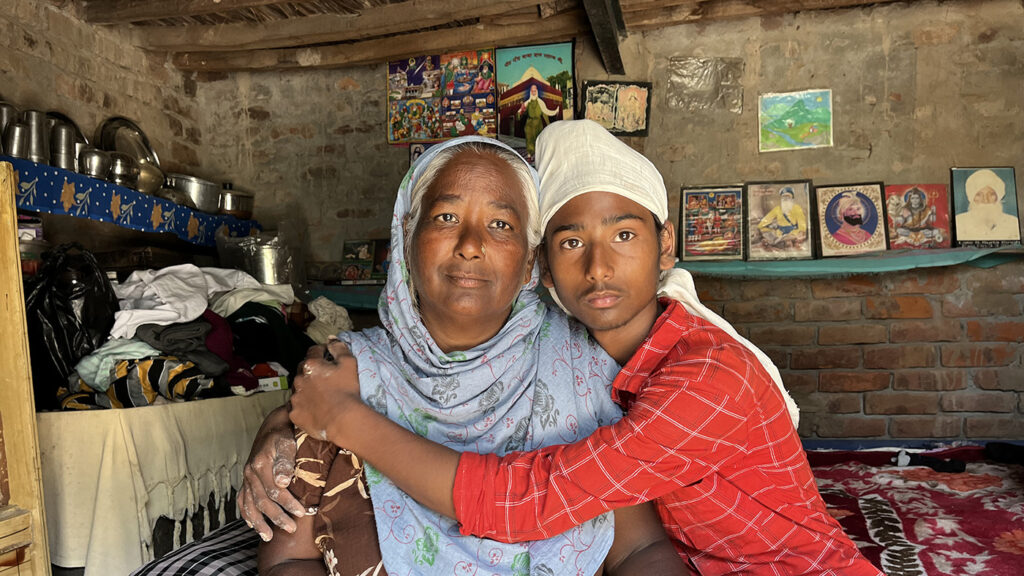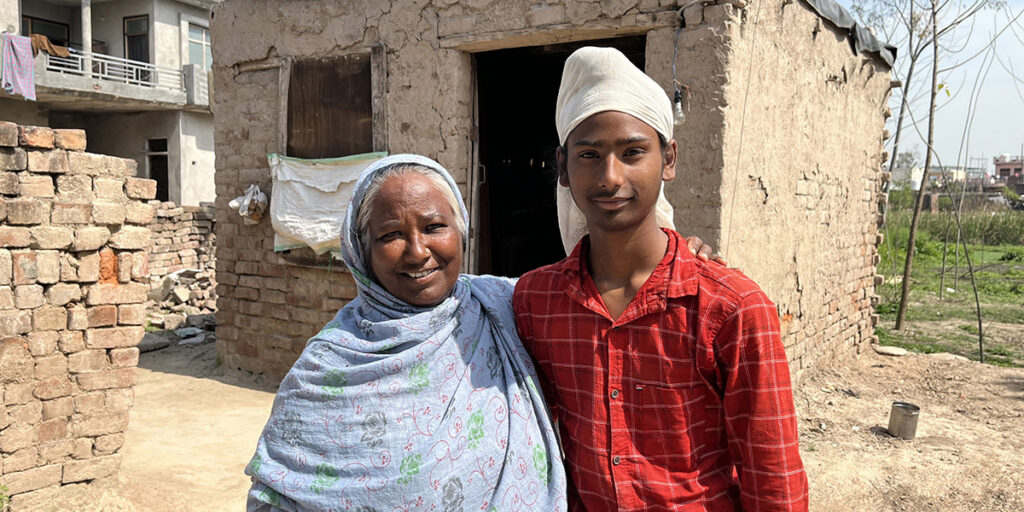
Right on the India-Pakistan border, there’s a village of about 600 people. They’re hard-working and creative but overlooked by government for basic services like clean water and education. Families struggle to provide enough food for themselves, and education and employment opportunities do not come by often.
During India’s Delta wave of COVID-19 last year, the lockdowns were crippling for the village.
Those who were day labourers lost their jobs. Families despaired that with schools closed, their children would fall behind in their education, closing off a vital path out of poverty.
Our partner, the Church of North India through the Amritsar Diocese, stepped into the breach.
They got special permits to travel to the village to find out who needed help and why. And they set about casting their stones across the water to create ripples of change that continue today.
For one family, the project workers were a lifeline.

Ranjit and her two sons were struggling to find enough to eat, elder son Yash (pictured) had no work and younger son Patel was finding it almost impossible to keep up with his schooling.
Three years earlier, Ranjit’s husband had died, leaving the family without income. Ranjit is partly paralysed and has never been able to work, and there was no way for either of her sons to contribute because of the lockdowns and job losses.
Ranjit’s youngest son Patel had been invited to attend an education centre run by the Church. Education workers followed him up and discovered that his family had no food or medical supplies, and no source of income. They first provided immediate assistance: meals, information about the pandemic, masks and soap.
After providing emergency relief, CNI sat down with Ranjit to find out what they could do beyond just a band-aid solution.
They helped her to access a widow’s pension, something Ranjit had been trying to do on her own for three years without success. They were also able to get support for her sons: continuing education assistance for her youngest Patel through the study centre, and an employment opportunity for her eldest son, Yash.
It’s just one of thousands of examples of how your support makes lasting ripples of change alongside our partners.
CNI staff returned to the village recently to check in on how the family and others there are doing. Ranjit and her sons told them they’re feeling grateful for the support and hopeful for the future.
“We are very thankful to the Church and project staff who have been so kind to me and my family when we were in so much trouble,” Ranjit says. “I had tried so many sources to get the pension but everything failed. Now we have both education and income to help run the family.”
Click here to read more about the impact of this project.
Across the Pacific, Asia and Africa, this is the approach our partners are taking to transform their communities. They seek out the most vulnerable. They sit with them, learn about their lives and build relationships. If they can find a way to help, they go about leveraging skills and resources to make a long-term impact.
Throughout COVID-19 and other disasters before it, our partners have stayed at the frontlines, risking their lives to serve communities fighting fear, starvation, economic ruin and disease. They have lost leaders, friends and family to COVID-19, but despite the adversities they were able to impact the lives of 464,495 people across our programs last year.
Right now is an especially powerful time to stand in solidarity with our partners and support our shared mission.
As a partner of the Australian Government, we can access funding each year to implement poverty alleviation, gender equality and climate change projects overseas. But we need your help to do it.
We have committed to contribute at least $1 for every $5 we can access in government funding, which means right now your gift goes up to six times as far helping us extend the reach of our programs.
You can help us create more ripples of change by giving a gift today. Together, our impact spreads far and wide and changes lives in so many ways.
Click here to donate now. 
Photos by CNI project staff
